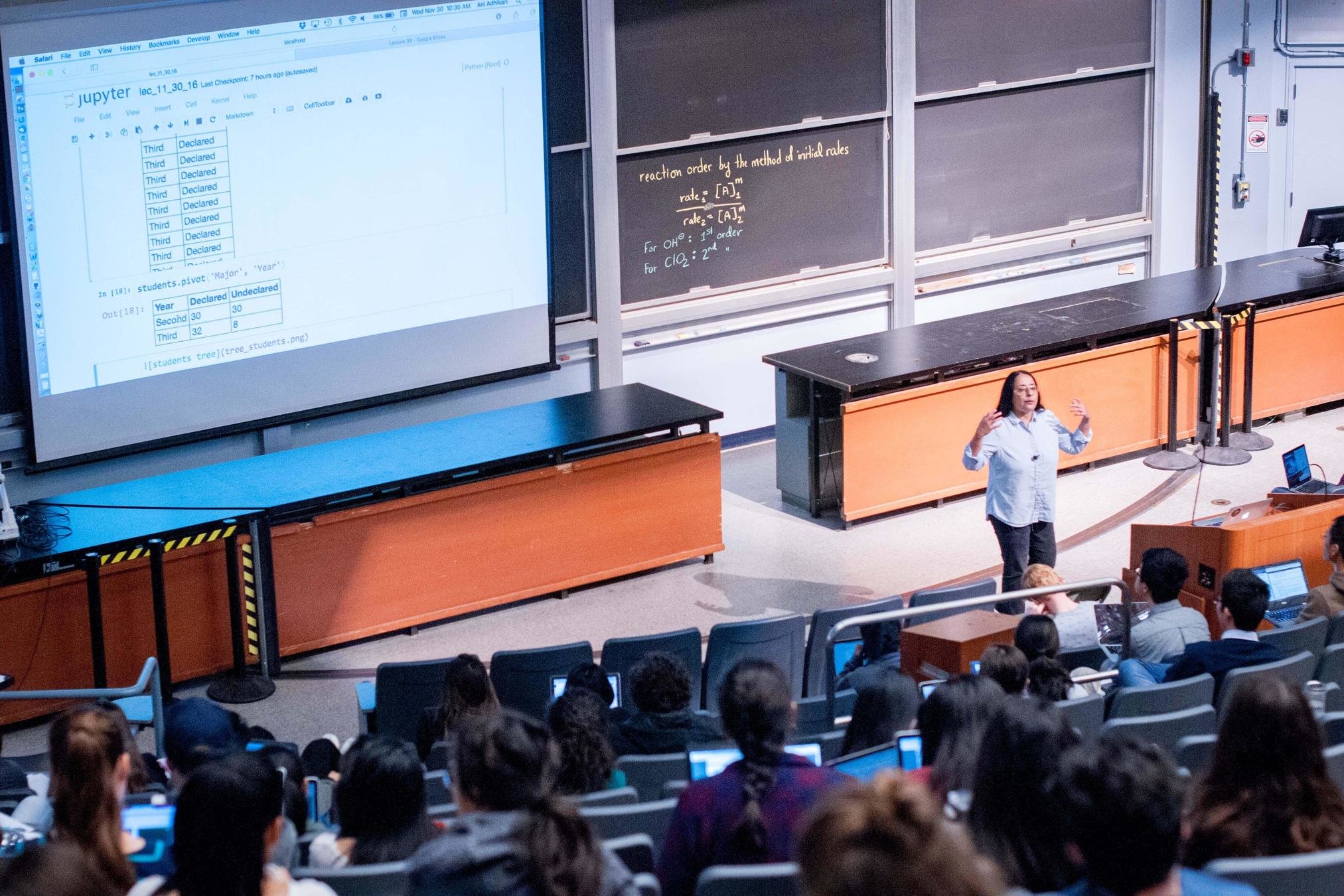AWS Pilot Project(s)

QTM
Institute for quantitative theory and methods
Recall, Fall 2017 Proposal:
"I want to provide a hosted computing environment on AWS for teaching a large introductory data science class that my department will offer starting fall 2018. More broadly, a group of faculty are putting together a proposal for the future of data science at Emory and I hope for this hosted environment to be adopted more broadly at Emory for teaching similar courses."
Data 8: The Foundations of Data Science
The UC Berkeley Foundations of Data Science course combines three perspectives: inferential thinking, computational thinking, and real-world relevance.
The course is offered in partnership with the Berkeley Division of Data Sciences.
data-8.github.io
Infrastructure
All of the software components of the course are maintained as open-source projects. We encourage you to contact us if you want any help using them. We also have prepared a guide on how to set up course infrastructure.
The OK autograder and submission system: The assignments depend on a Python-based autograder that includes client-side tests available to students at any time and server-side tests intended for correctness-based grading.
Hosted Computing Environment: We provide a hosted environment for our students to edit and execute their Notebooks. It includes two components, a Kubernetes-based deployment of JupyterHub that we have specifically designed for courses, and an assignment server that loads assignments into the students’ environment.

Current
-
Mathematical intuition
-
Definition
Kolmogorov
Every continuous function of several variables defined on the unit cube can be represented as a superposition of continuous functions of one variable and the operation of addition (1957).
Thus, it is as if there are no functions of several variables at all. There are only simple combinations of functions of one variable.


-
one ''hidden layer"
-
one "node"
-
"activation" phi
-
"threshold" theta
Definition of a feedforward neural network
Definition of a feedforward neural network
-
one ''hidden layer"
-
two "nodes"
Definition of a feedforward neural network
(vector notation)

Google's TensorFlow and ML workbench
-
Google Cloud Platform Datalab (https://cloud.google.com/datalab/)
-
TensorFlow and high-level framework (ML Workbench)
import google.datalab.contrib.mlworkbench.commandsThank you!
Copy of Introduction to neural networks
By Jeremy Jacobson
Copy of Introduction to neural networks
- 149



